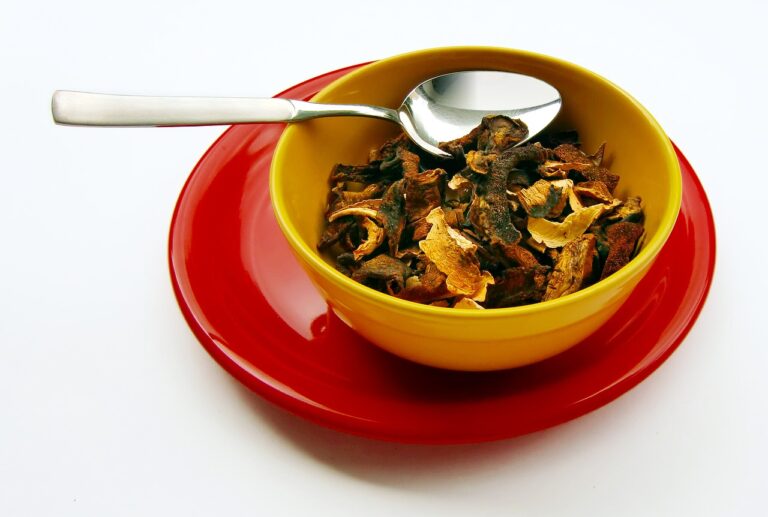The Health Benefits of Lemongrass: Digestive Health and Stress Relief: Silverexch, Goldenexch. Bet, Betbook247
silverexch, goldenexch. bet, betbook247: Lemongrass is an herb that is commonly used in Asian cuisine for its unique flavor and aroma. However, this versatile plant also offers a range of health benefits, particularly when it comes to digestive health and stress relief. In this article, we’ll explore the various ways in which lemongrass can improve your overall well-being.
What is Lemongrass?
Lemongrass, also known as Cymbopogon, is a tropical herb that belongs to the grass family. It is native to countries in Southeast Asia, such as India and Thailand, and is widely cultivated for its culinary and medicinal properties. Lemongrass has a strong citrusy flavor and aroma, which is why it is commonly used in curries, soups, and teas.
1. Digestive Health Benefits of Lemongrass
Lemongrass has long been used in traditional medicine to aid digestion and calm the stomach. The herb contains compounds that help to stimulate the production of digestive enzymes, which can improve digestion and alleviate symptoms such as bloating, gas, and indigestion. Additionally, lemongrass has antibacterial and antimicrobial properties that can help to prevent digestive issues caused by harmful bacteria.
2. Stress Relief Benefits of Lemongrass
In addition to its digestive benefits, lemongrass is also known for its stress-relieving properties. The herb contains compounds that have been shown to reduce anxiety and promote relaxation. Drinking lemongrass tea or using lemongrass essential oil in aromatherapy can help to calm the mind and reduce feelings of stress and tension.
3. Antioxidant Properties of Lemongrass
Lemongrass is rich in antioxidants, which are compounds that help to protect the body from damage caused by free radicals. Free radicals are unstable molecules that can cause oxidative stress and contribute to various health issues, such as inflammation, heart disease, and cancer. By consuming lemongrass regularly, you can help to neutralize free radicals and reduce your risk of developing chronic diseases.
4. Anti-Inflammatory Effects of Lemongrass
Inflammation is a natural response that helps the body to heal from injuries and fight off infections. However, chronic inflammation can be harmful and contribute to the development of various diseases, such as arthritis, diabetes, and heart disease. Lemongrass contains compounds that have been shown to have anti-inflammatory effects, which can help to reduce inflammation and protect against chronic health conditions.
5. Immune-Boosting Properties of Lemongrass
Lemongrass is also known for its immune-boosting properties, thanks to its high content of vitamins, minerals, and antioxidants. By consuming lemongrass regularly, you can help to strengthen your immune system and improve your body’s ability to fight off infections and diseases. Additionally, lemongrass has antimicrobial properties that can help to protect against pathogens and prevent illness.
6. Detoxifying Benefits of Lemongrass
Lemongrass is a natural diuretic, which means that it can help to flush out toxins and waste products from the body through increased urination. By promoting the elimination of toxins, lemongrass can help to detoxify the body and improve overall health. Additionally, lemongrass has cleansing properties that can help to support the liver and kidneys in their detoxification processes.
7. Weight Loss Benefits of Lemongrass
In addition to its detoxifying effects, lemongrass can also help to promote weight loss and support a healthy metabolism. The herb contains compounds that can help to suppress appetite, increase energy expenditure, and reduce fat accumulation in the body. By incorporating lemongrass into your diet or using it as a supplement, you can support your weight loss goals and improve overall health.
8. Skin Health Benefits of Lemongrass
Lemongrass has antiseptic and astringent properties that can help to promote healthy skin and prevent acne and other skin issues. The herb can help to cleanse and tighten pores, reduce excess oil production, and soothe inflammation. Additionally, lemongrass has antibacterial properties that can help to prevent bacterial infections and promote skin healing.
9. Blood Sugar Regulation with Lemongrass
Lemongrass has been shown to help regulate blood sugar levels and improve insulin sensitivity, making it a beneficial herb for individuals with diabetes or those at risk of developing the condition. By consuming lemongrass regularly, you can help to stabilize blood sugar levels and reduce the risk of complications associated with diabetes, such as heart disease and nerve damage.
10. How to Incorporate Lemongrass into Your Diet
There are various ways to incorporate lemongrass into your diet and enjoy its health benefits. You can use fresh or dried lemongrass in cooking to add flavor to dishes, such as stir-fries, soups, and curries. Lemongrass tea is also a popular and easy way to enjoy the herb’s benefits simply steep fresh or dried lemongrass in hot water for a soothing and aromatic beverage.
Lemongrass essential oil can be used in aromatherapy to promote relaxation and reduce stress. You can diffuse the oil in a diffuser or add a few drops to a warm bath for a calming and rejuvenating experience. Additionally, lemongrass essential oil can be diluted with a carrier oil and applied to the skin for its cleansing and antimicrobial properties.
FAQs About Lemongrass
Q: Is lemongrass safe for everyone to consume?
A: While lemongrass is generally safe for most people when consumed in moderate amounts, it may cause allergic reactions in some individuals. If you have a known allergy to lemongrass or grasses, it is best to avoid consuming it. Additionally, pregnant and breastfeeding women should consult with a healthcare provider before using lemongrass as a supplement.
Q: Can lemongrass interact with medications?
A: Lemongrass may interact with certain medications, such as blood thinners and diabetes medications. If you are taking any medications, it is important to speak with a healthcare provider before using lemongrass as a supplement to avoid any potential interactions.
Q: How can I grow lemongrass at home?
A: Lemongrass is relatively easy to grow at home, either in a pot or in the ground. You can purchase lemongrass stalks from a grocery store or nursery and plant them in well-draining soil with plenty of sunlight. Keep the soil moist and trim the leaves regularly to encourage new growth.
Q: Are there any side effects of consuming lemongrass?
A: In some cases, consuming large amounts of lemongrass may cause digestive issues, such as stomach upset and diarrhea. It is best to consume lemongrass in moderation to avoid any potential side effects. If you experience any adverse reactions, discontinue use and consult with a healthcare provider.
In conclusion, lemongrass offers a range of health benefits, particularly when it comes to digestive health and stress relief. By incorporating lemongrass into your diet and daily routine, you can support your overall well-being and improve your quality of life. Whether you enjoy lemongrass tea, use lemongrass essential oil in aromatherapy, or cook with fresh lemongrass, this versatile herb can help to enhance your health in various ways.







